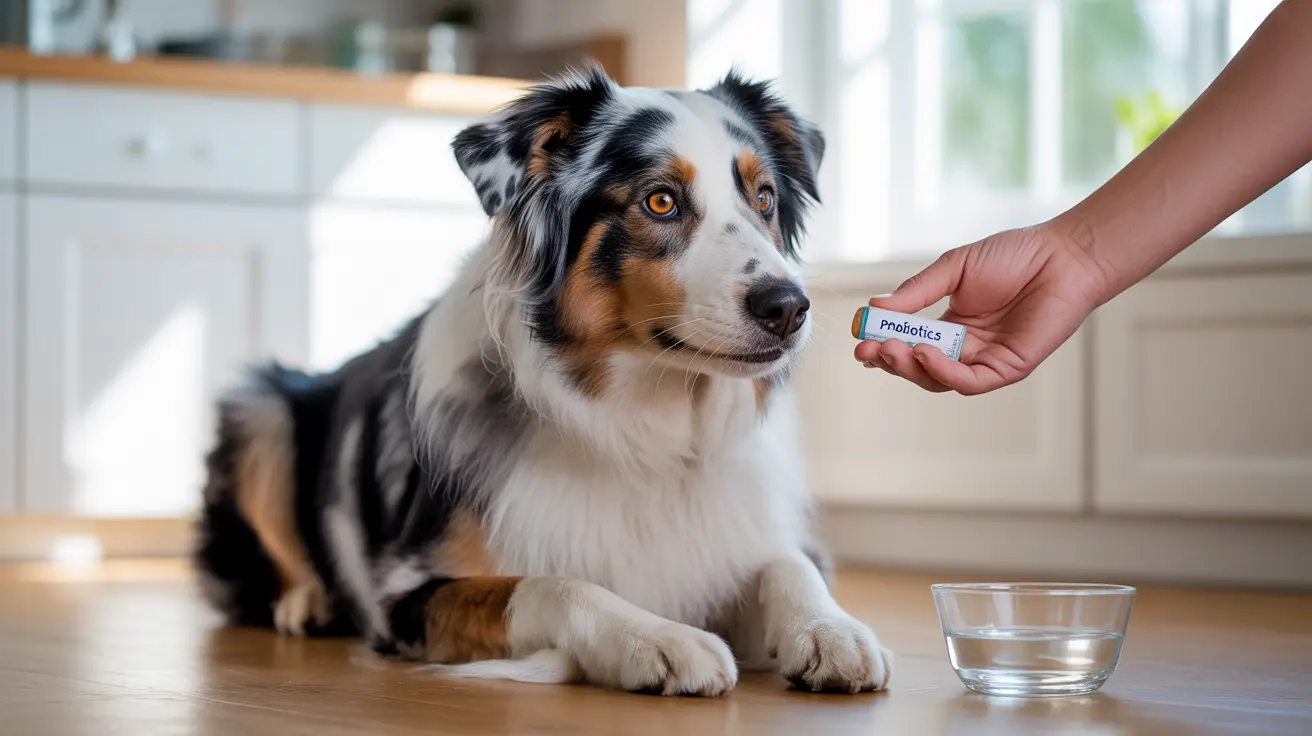Introduction
When your furry friend is prescribed antibiotics, understanding potential dog antibiotics side effects is crucial for their wellbeing. While these medications are essential for treating bacterial infections, they can cause various reactions ranging from mild digestive issues to more serious complications. This comprehensive guide will help you recognize common side effects, know when to be concerned, and understand how to best support your dog during antibiotic treatment.
Being informed about possible reactions not only helps you monitor your pet more effectively but also ensures you can act quickly if serious side effects develop. Let's explore everything you need to know about antibiotic side effects in dogs and how to manage them safely.
Common Gastrointestinal Side Effects
Digestive system reactions are the most frequently reported side effects when dogs take antibiotics. These typically include:
- Nausea and vomiting
- Diarrhea or loose stools
- Decreased appetite
- Excessive drooling
These symptoms occur because antibiotics can disrupt the natural balance of beneficial bacteria in your dog's gut. While usually mild, persistent or severe gastrointestinal issues should be reported to your veterinarian.
Serious Side Effects to Watch For
While less common, some dogs may experience more severe reactions to antibiotics that require immediate veterinary attention:
- Facial swelling or hives
- Difficulty breathing
- Severe lethargy
- Seizures or tremors
- Irregular heartbeat
These symptoms could indicate an allergic reaction or serious adverse effect and should never be ignored. Some breeds, particularly those with the MDR1 gene mutation, may be more susceptible to severe reactions.
Managing Side Effects During Treatment
There are several ways to help minimize antibiotic side effects in your dog:
- Administer medications with food unless otherwise directed
- Maintain consistent dosing times
- Consider probiotic supplements (with veterinary approval)
- Keep your dog well-hydrated
- Monitor eating habits and activity levels
Never adjust dosage or stop treatment without consulting your veterinarian, as this could lead to antibiotic resistance or incomplete treatment of the infection.
Impact on Your Dog's Microbiome
Antibiotics can significantly affect your dog's gut microbiome, potentially leading to long-term digestive issues. The medication doesn't discriminate between harmful and beneficial bacteria, often resulting in an imbalanced gut flora. This disruption can manifest as:
- Ongoing digestive sensitivity
- Changes in stool consistency
- Reduced immune function
- Increased susceptibility to future infections
Prevention and Support Measures
To help your dog cope better with antibiotic treatment:
- Keep detailed records of any side effects
- Follow exact dosing instructions
- Complete the full course of antibiotics
- Consider gut-supporting supplements recommended by your vet
- Maintain a consistent feeding schedule
Frequently Asked Questions
What are the most common side effects of antibiotics in dogs?
The most common side effects include gastrointestinal upset, such as vomiting, diarrhea, and decreased appetite. Some dogs may also experience lethargy and increased thirst during treatment.
Can antibiotics cause allergic reactions in dogs, and what are the symptoms?
Yes, dogs can experience allergic reactions to antibiotics. Symptoms include facial swelling, hives, difficulty breathing, excessive drooling, and in severe cases, anaphylaxis. These reactions require immediate veterinary attention.
How can I minimize gastrointestinal upset when giving my dog antibiotics?
Unless specifically contraindicated, give antibiotics with food to reduce stomach upset. Probiotics (approved by your vet) can also help maintain gut health during treatment.
Why do dogs often become lethargic or tired when taking antibiotics?
Lethargy during antibiotic treatment can occur because the body is using energy to fight infection while also processing the medication. This temporary fatigue usually resolves as the infection clears.
What should I do if I notice severe side effects in my dog while on antibiotics?
If you observe severe side effects such as difficulty breathing, facial swelling, seizures, or prolonged vomiting/diarrhea, contact your veterinarian immediately or seek emergency veterinary care.
Conclusion
While antibiotics are vital for treating bacterial infections in dogs, being aware of potential side effects helps ensure your pet's safety during treatment. Always follow your veterinarian's instructions carefully, monitor your dog for any adverse reactions, and don't hesitate to seek professional help if concerning symptoms develop.






